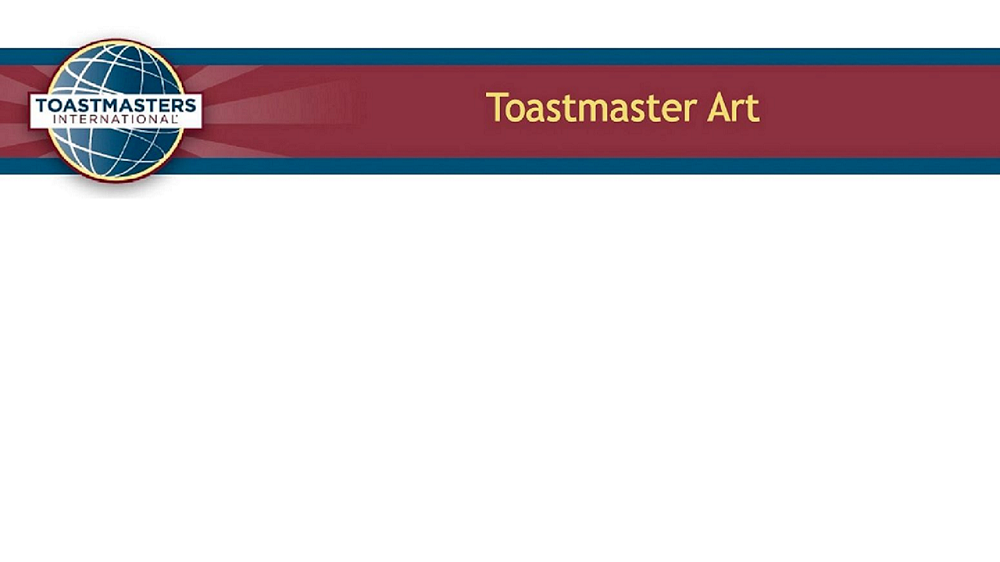Mister or Madame Timer,
Has the general evaluator asked you, near the meeting’s start, to briefly explain your role to attendees, and have you mentioned in that description a “30 second buffer” at either end of the prescribed time period allowed? Using Table Topics as an example, did you explain to attendees, “For Table Topics, you should try to speak from one to two minutes, but it’s okay if you at least make it to 30 seconds and don’t speak for more than 2 minutes, 30 seconds, because there’s a 30-second grace period”? If so, pause here and ask yourself, “From where did I get that explanation?” “Who taught me that?”
Let’s examine a few sources of information about the role of Timer to see if they allow for a grace period.
1) First, the Timer role description on the Toastmasters International Web site (http://www.toastmasters.org/Membership/Club-Meeting-Roles/Timer). The closest thing here is “Throughout the meeting, listen carefully to each participant and signal them (sic) accordingly.”
2) Second, the Toastmasters International Speech Contest Rulebook. If you turn to Section 6, Timing of the Speeches, and look in subsection E, you will find the following:
1. International and Humorous contest speeches must be from five (5) to seven (7) minutes. A contestant will be disqualified if the speech is less than four (4) minutes 30 seconds or more than seven (7) minutes 30 seconds.
2. Table Topics contest speeches must be from one (1) minute to two (2) minutes. A contestant will be disqualified if the speech is less than one (1) minute or more than two (2) minutes 30 seconds.
3. Evaluation contest speeches must be from two (2) to three (3) minutes. A contestant will be disqualified if the speech is less than one (1) minute 30 seconds or more than three (3) minutes 30 seconds.
4. Tall Tales contest speeches must be from three (3) to five (5) minutes. A contestant will be disqualified if the speech is less than two (2) minutes 30 seconds or more than five (5) minutes 30 seconds.
It sure looks like a 30-second before and after grace period applies to International, Humorous, Evaluation, and Tall Tales contest speeches, and for Table Topics, there’s a 30-second grace period on the “after” side. I believe we have found the source of the Common Timer Misunderstanding, but the grace periods described here are only for contest speeches. Since the Rulebook does not address non-contest speeches in one’s club, these allowance provisions do not apply to them.
3) I like to refer Toastmasters I am training or mentoring to the back of the book, “the book” being one’s Competent Communication manual. While I shan’t share with you all of the description of the role of Timer, which is on pages 69-70 in the 6/2014 revision, here is some relevant content that concisely explains the primary reason we time our speeches:
“One of the lessons to be practiced in speech training is that of expressing a thought within a specific time.”
Flip to page 70 and look under the heading “During the meeting.” The third bulleted paragraph says, in the last two sentences,
“Generally topic speakers should be more or less 15 seconds of allowed time; prepared speakers must be more or less 30 seconds. However, these times may vary from club to club.”
Putting aside the somewhat poor and confusing grammar, I get the impression that perhaps (“generally”) there’s a 15-second before and after period allowed for Table Topics speakers and a 30-second before and after period allowed for prepared speakers. Regardless, the last sentence is important, when it says the times may vary from club to club.
What can we take away from this? Should we announce and allow grace periods for prepared speakers and Table Topics speakers? What about prepared speech evaluators? What about the other functionaries at a meeting? If we grant everyone extra time, the effectiveness of the timing discipline is diminished and the times on our agendas become suggestions, not guidelines. Very important to a Toastmasters meeting is starting on time, ending on time, and keeping the meeting segments in accordance with the agenda. But what about those grace periods, then? We’ve discounted those in the Contest Rulebook, but what about those in the back of the CC manual?
Some clubs have their members vote for best prepared speaker, best Table Topics speaker and/or best evaluator. A part of that, at least at the clubs I have been to which vote for these awards, is having the timer announce if any of the members vying for a ribbon were disqualified. That is where (and when), I suggest, we apply the grace periods: 15 seconds before and after a Table Topics speech and 30 seconds before and after a prepared speech if your club issues awards and thus timing disqualification is relevant. Even if your club issues awards, it can choose, based on that “times may vary from club to club” provision, to not have any grace periods. To avoid ambiguity, I suggest your club establish and record the grace period values to be used, if any, and absent any giving of awards, make it clear that there are no grace periods, explaining the purpose of timing as I shared in section 3 above. The Education Awards Team at Toastmasters International suggested, in that regard, sharing with you the following:
Clubs should keep in mind that member skills and abilities vary. Of course, following the guidelines of Toastmasters branded manuals with the provided times and objectives will render the most benefit. Should your club adopt methods specific to its culture that the club members feel would provide more beneficial results, they are welcome to create a motion, vote it into action and place that information in their Addendum of Standard Club Options. Many clubs do this with the Speech Contest Rulebook guidelines to provide their members with practice for contest season.
Those of us who have been in Toastmasters for quite a while likely received the Competent Toastmaster (CTM) award. We should be pleased with the receipt of that CTM, but let’s avoid the other CTM.
Updated on 11 October 2022 to incorporate new Contest Rulebook Section 6 verbiage and include Tall Tales contest timing.

